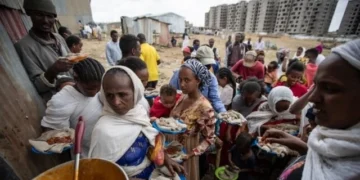By Ebi Kesiena
The United Nations (UN) has sounded a fresh alarm over a looming global hunger emergency, naming Nigeria and Mali among 16 countries facing escalating food insecurity due to conflict, climate shocks, and dwindling humanitarian funding.
This was contained in a joint report released by the Food and Agriculture Organisation (FAO) and the World Food Programme (WFP), which warned that millions more people could slide into famine in the coming months if urgent action is not taken.
According to the report, conflict and violence remain the primary drivers of acute hunger in most of the affected regions. The agencies identified Haiti, Mali, Palestine, South Sudan, Sudan, and Yemen as the worst-hit areas where populations face an imminent risk of catastrophic hunger. Nigeria was classified as a zone of very high concern, alongside Afghanistan, the Democratic Republic of the Congo, Myanmar, Somalia, and Syria.
Other countries listed as hunger hotspots include Burkina Faso, Chad, Kenya, and Bangladesh, particularly concerning the plight of the Rohingya refugees.
WFP Executive Director Cindy McCain issued a stark warning, saying the world stands “on the brink of a completely preventable hunger catastrophe that threatens widespread starvation in multiple countries.” She cautioned that failure to respond swiftly “will only drive further instability, migration, and conflict.”
The report further revealed that humanitarian relief funding is falling “dangerously short,” with only $10.5 billion secured out of the $29 billion required to adequately address the crisis. The WFP has already been forced to scale down aid to refugees and suspend vital school feeding programmes in several countries.
The FAO also raised concerns that efforts to sustain agricultural production, such as providing seeds, tools, and livestock health services are at risk due to funding cuts. It warned that without immediate support before planting seasons begin, the world could see recurring hunger crises in 2026 and beyond.
Both agencies called for renewed international commitment and collective action to prevent what they described as “a worsening humanitarian disaster.”




































